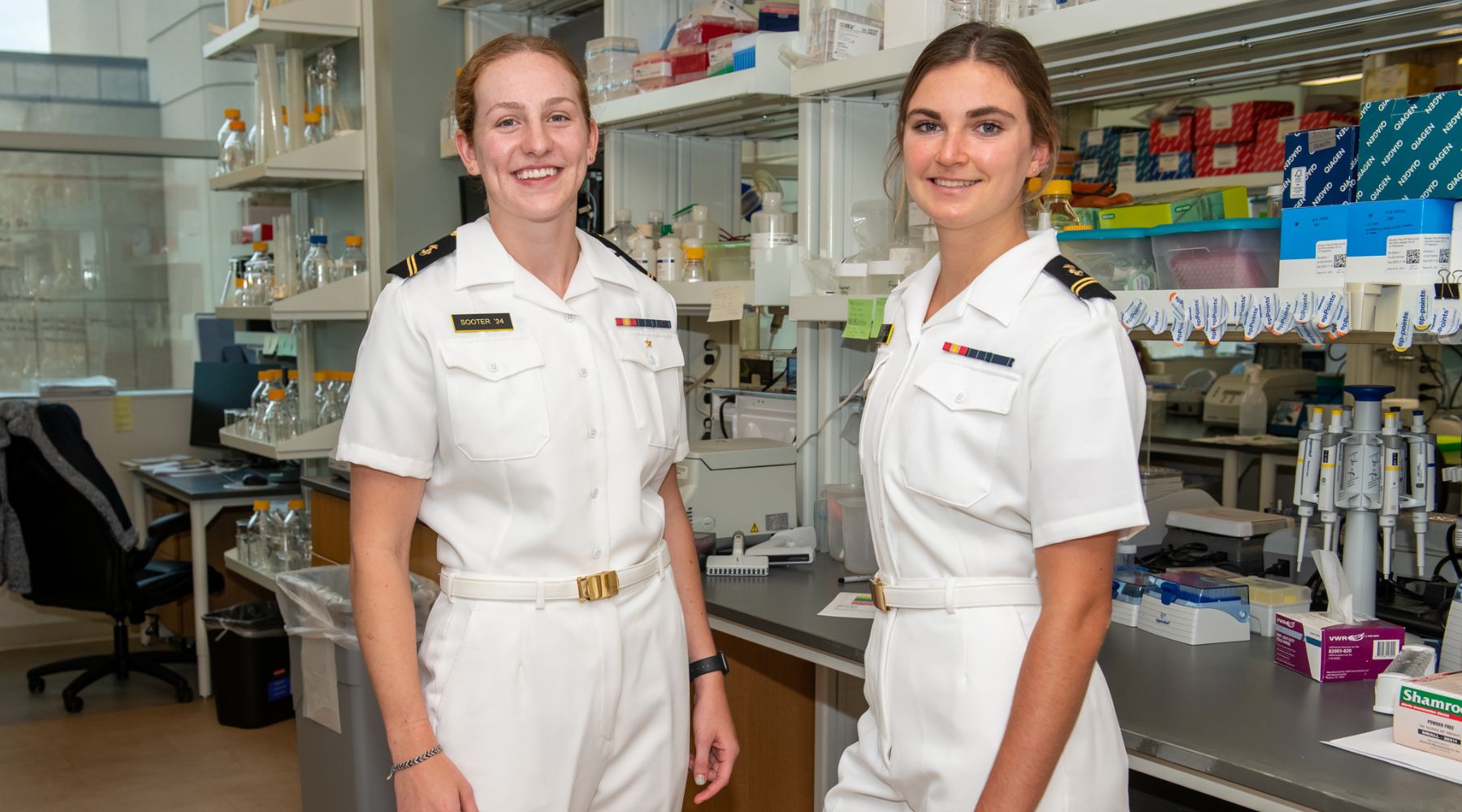Colorado’s Alexandra Foreman and Zoe Sooter are beginning their junior year at the U.S. Naval Academy with a greater appreciation for biomedical research.
The midshipmen and chemistry majors recently completed the Oklahoma Medical Research Foundation’s John H. Saxon Service Academy Summer Research Program.
The Saxon program compresses an intensive summer internship into three to four weeks, culminating in a presentation of their research. John Saxon III, M.D., a Muskogee physician and OMRF board member since 2000, established the program to honor his father, a West Point graduate who taught at the U.S. Air Force Academy and was a career Air Force pilot.
“Some people may not think of basic science and the military as linked,” Saxon said. “But I thought that I could use OMRF’s work as an opportunity to stimulate some basic bench science interest with cadets at service academies.”
Foreman, from Denver, and Sooter, from Boulder, represented half of OMRF’s 12th class of Saxon students. Philip Golder, a junior at the Air Force Academy, and Liam Sasser, a senior at West Point, completed their internships in June.
In the lab of OMRF scientist Bill Freeman, Ph.D., Sooter worked to develop a technique to distinguish between two chemical reactions. Such a technique would aid research into the causes of aging-related brain diseases such as Alzheimer’s and Parkinson’s.
Foreman’s research involved a gene that plays a role in creating healthy knee joints. “If the gene is overexpressed during the embryonic stage, the joint will stay fused together, and we’re trying to understand why,” she said.
Foreman’s mentor, Lorin Olson, Ph.D., has hosted several Saxon students since he joined OMRF in 2010. He enjoys the interactions because “they make the most of their time here. They’re just really energetic, engaged and curious.”
Neither student had any prior research experience, and Sooter said she arrived with a misconception about experiments and the people who conduct them.
“I thought scientists spent all day alone in a lab,” she said. “They collaborate far more than I imagined.”
Sooter’s internship enticed her to pursue a career in chemistry or biological research after fulfilling her five-year Navy commitment, during which she hopes to serve on a submarine. Foreman hopes her Navy assignment involves medical school.
“This has been amazing,” Foreman said of the Saxon program. “The hands-on nature of this experience has really helped me understand the material, which will benefit me as I take more biology classes.”



